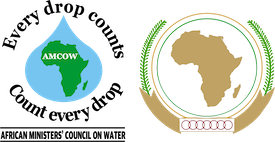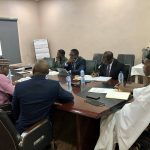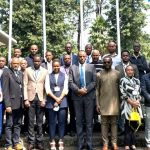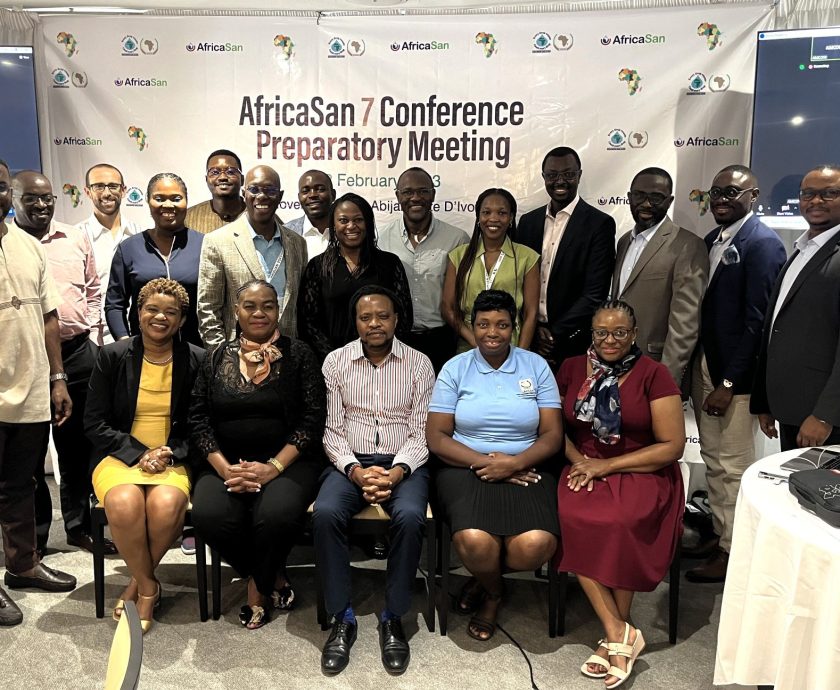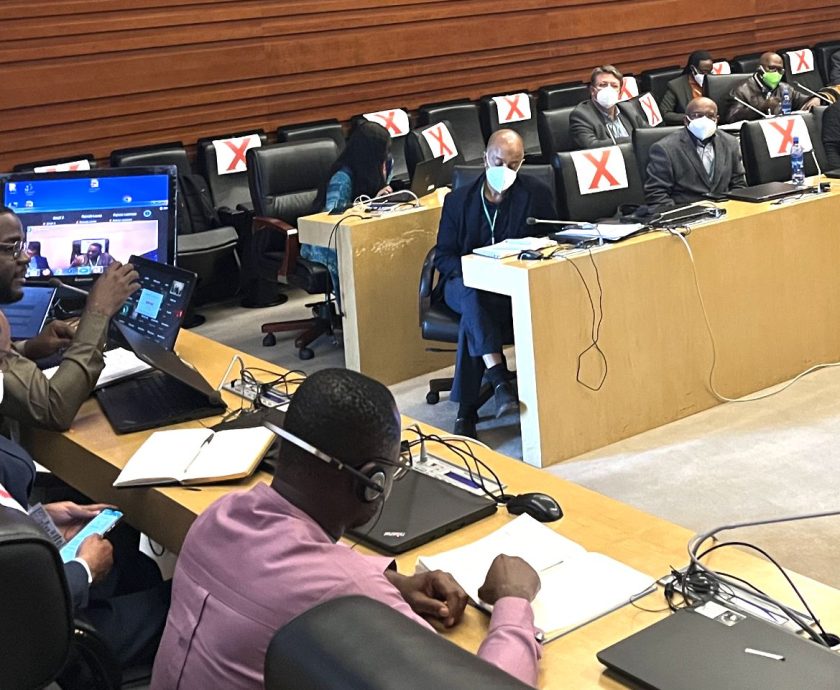The African Ministers’ Council on Water has organised a Sanitation Partners’ Alignment Workshop to create synergy with related ongoing partner interventions in achieving the outcomes of its sanitation programme and the new African Sanitation Policy Guidelines – ASPGs in Action.
On the 7th of June, 2022, AMCOW started the two-day Sanitation Partners’ Alignment Workshop, which took place at Fraser Suites in Abuja, Nigeria. Among others, the objectives of the workshop include achieving:
- A shared appreciation of the vitality of the safely managed sanitation sub-programme to AMCOW’s overall delivery on the strategic pillars of the AMCOW Strategic Operational Plan (SOP) 2022 – 2024.
- A framework for assuring complementarity in the vertical linkages between AMCOW, WHO and UNICEF’s monitoring tools and systems for reporting on the ASPGs in Action.
Forty-three sanitation professionals (30 in-person, 13 virtual) attended, representing the Member States and the following 11 organisations:
- African Union Commission (AUC),
- African Development Bank (AfDB),
- Eastern and Southern Africa Water and Sanitation (ESAWAS),
- Bill and Melinda Gates Foundation (BMGF),
- UNICEF,
- World Health Organisation (WHO),
- United States Agency for International Development (USAID),
- Speak Up Africa (SUA),
- WaterAid,
- African Population and Health Research Centre (APHRC), and
- African Civil Society Network on Water and Sanitation (ANEW).
Highlights of the workshop include presentations of AMCOW’s Strategy 2018 and the Strategic Operational Plan 2022-2024, an overview of the ASPGs in Action proposal, the African Sanitation Policy Guidelines Assessment Tool (ASPAT), and Technical Assistance for Policy Development Across Africa, ASPG Domestication in Nigeria: Reviewing the Journey, Engagement with member states on ASPG utilisation and Sanitation Policy Landscape across Africa.
AMCOW’s Acting Director of Programmes, Dr Azzika Tanko, assured participants that AMCOW’s new sanitation programme the ASPGs in Action falls within the three pillars of AMCOW’s convening, mobilising and reporting work. He observed that the critical outcome of the ASPGs in Action proposal was to work with partner interventions to galvanise action for utilising the ASPGs across the Member States.
The meeting underscored that member states should take the lead in policy developments to enhance their capacity for policy implementation and to align with other partners supporting ASPG utilisation in other countries like the WaterAid example – supporting Nigeria.
In her presentation, Ms Ann Thomas, Senior Advisor, WASH, UNICEF, stated that UNICEF is recruiting a pool of consultants to provide technical assistance for in-country policy development. This effort, she said, feeds into UNICEF’s strategic shift for 2022 – 2025 to eliminate open defecation and basic sanitation to safely managed sanitation. Also, she stated that UNICEF will support ASPG utilisation in six countries and then cascade to 50 plus countries by 2025 and globally, after all.
AMCOW will continue to work with its development partners to help other countries take steps toward actively utilising the ASPGs to improve their sanitation and hygiene policy landscape, such as Kenya, Nigeria, Senegal, Ethiopia, Niger, and Zimbabwe are doing.
